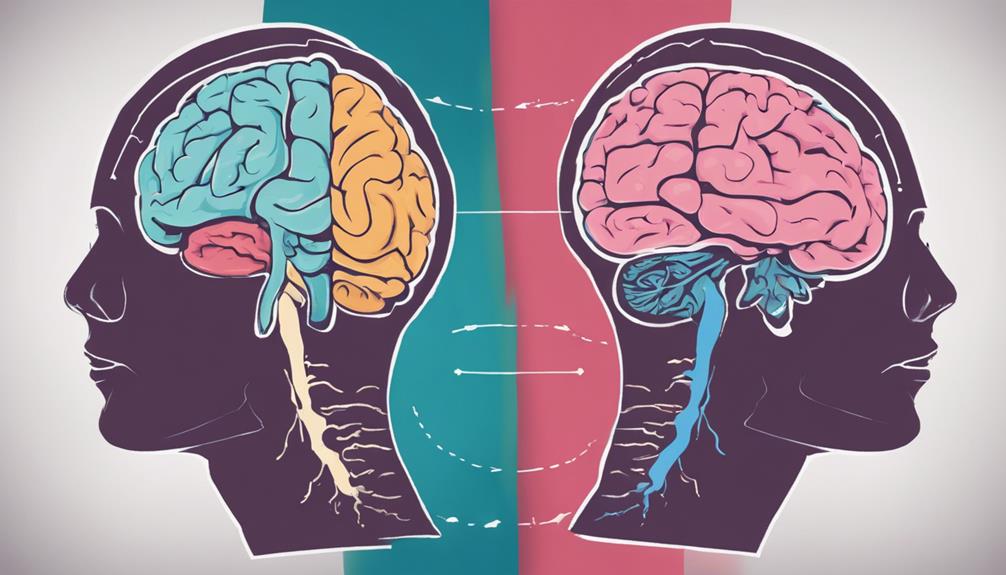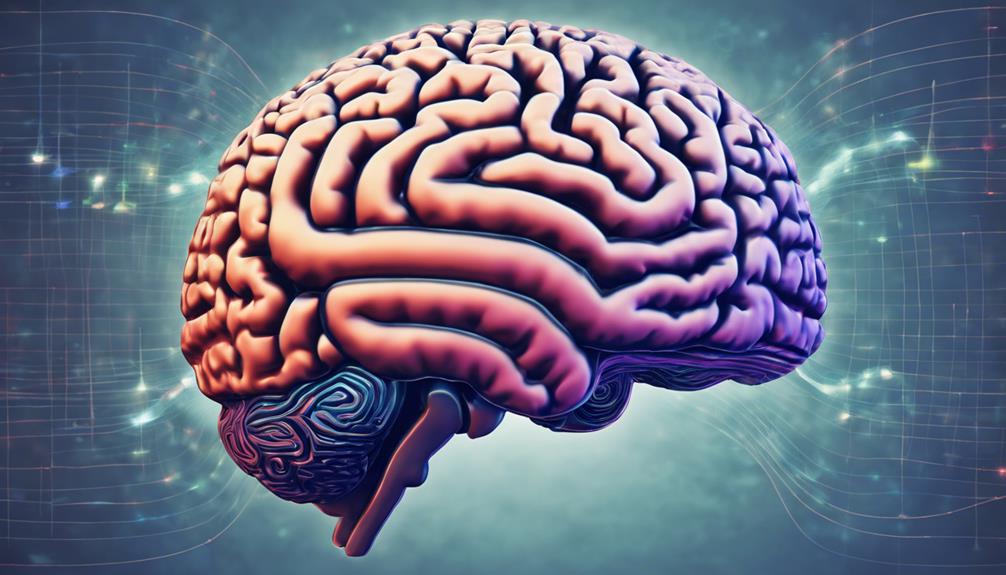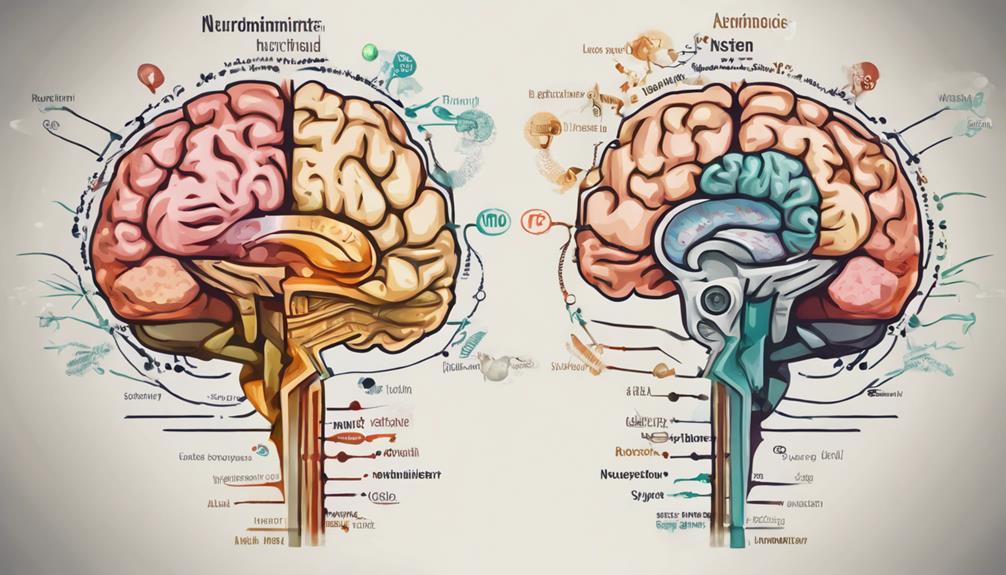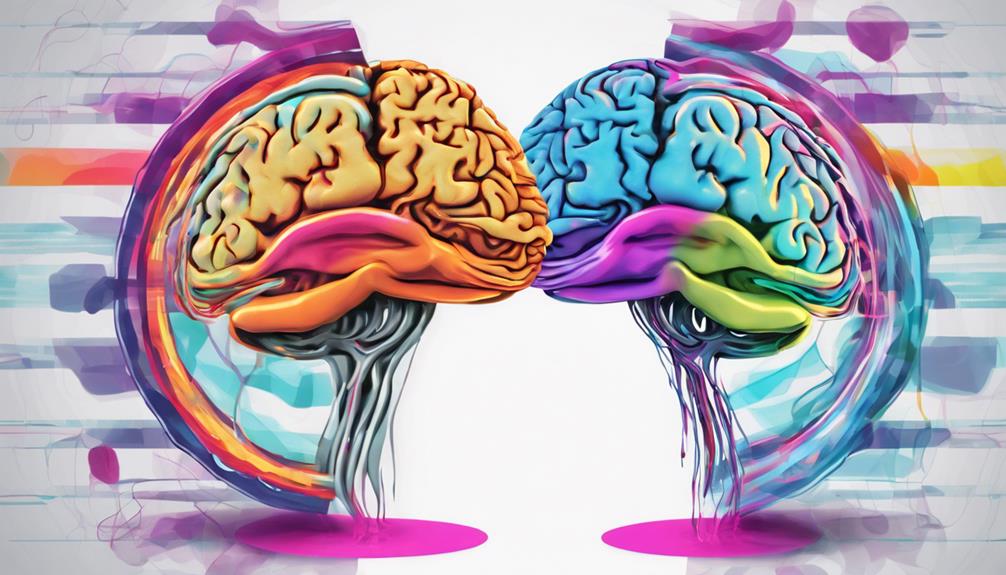Brain activity changes in hypnosis due to altered neural connectivity, brainwave patterns, neurotransmitter modulation, and suggestive cognitive effects. During hypnosis, distinct brain regions related to attention, perception, and self-awareness show increased or decreased activity. The dorsolateral prefrontal cortex becomes more active, while the default mode network activity decreases. This results in a shift in brain network connections, enhancing suggestibility and attention. EEG studies reveal unique brainwave patterns, with increased theta waves indicating relaxation and heightened focus. Additionally, neurotransmitter regulation impacts cognitive functions like attention and perception. These factors collectively contribute to the altered brain activity observed during hypnosis.
Neural Correlates of Hypnotic State

The neural correlates of the hypnotic state have been a subject of extensive research, aiming to elucidate the underlying mechanisms of altered consciousness during hypnosis. Neuroimaging studies, particularly utilizing functional MRI analysis, have provided valuable insights into the brain activity associated with the hypnotic state. These studies have revealed distinct patterns of neural activation and connectivity that are characteristic of individuals experiencing hypnosis.
Functional MRI analysis has shown changes in brain activity during hypnosis, with alterations in regions involved in attention, perception, and self-awareness. For instance, increased activity in the dorsolateral prefrontal cortex, a region linked to executive functions, has been observed during hypnotic suggestion.
Conversely, decreased activity in the default mode network, responsible for self-referential thoughts, has been noted, indicating a shift in attention and awareness during hypnosis.
Altered Brain Connectivity in Hypnosis
Studies exploring brain connectivity patterns in individuals undergoing hypnosis have revealed significant alterations in neural networks. Hypnosis induces an altered state of consciousness characterized by heightened suggestibility and focused attention, leading to changes in cognitive processing and attention modulation.
These alterations in brain connectivity highlight the dynamic nature of neural networks during hypnosis, suggesting a reorganization of functional brain regions.
Research indicates that hypnosis can influence brain plasticity, the brain's ability to reorganize itself by forming new neural connections. During hypnosis, there is increased connectivity between regions involved in attentional control and regions responsible for cognitive processes, indicating a shift in neural network interactions.
This enhanced connectivity may underlie the increased suggestibility and focused attention observed in individuals under hypnosis.
Brainwave Patterns During Hypnosis

Recent findings have shed light on the distinct brainwave patterns observed during the hypnotic state. EEG analysis has been instrumental in uncovering these patterns, revealing unique characteristics when individuals are in a hypnotic trance.
Studies have demonstrated that during hypnosis, there is an increase in theta brainwave activity, which is associated with deep relaxation and heightened focus. This heightened theta activity suggests a shift in the individual's cognitive processing, leading to increased suggestibility and responsiveness to hypnotic suggestions.
Moreover, research has shown that there is a decrease in beta brainwave activity during hypnosis, indicating a reduction in mind-wandering and an enhanced state of attention. This alteration in brainwave patterns aligns with the cognitive effects observed during hypnosis, such as improved concentration, heightened imagery, and altered perception of reality.
Neurotransmitter Modulation in Hypnotic State
Neurotransmitter modulation plays a crucial role in shaping the neurochemical environment of the brain during the hypnotic state. The hypnotic state is characterized by alterations in neurotransmitter regulation, impacting cognitive effects such as attention, perception, and memory.
GABA, the primary inhibitory neurotransmitter in the brain, is thought to be involved in the induction and maintenance of hypnosis. Studies suggest that GABAergic signaling is enhanced during hypnosis, leading to decreased neural activity in certain brain regions associated with critical thinking and self-awareness.
Additionally, the modulation of neurotransmitters like dopamine and serotonin may contribute to the subjective experiences reported during hypnosis, such as heightened suggestibility and altered time perception. Dopamine, known for its role in reward processing and motivation, could influence the reinforcement of hypnotic suggestions. On the other hand, serotonin, implicated in mood regulation, might impact the emotional responses and suggestibility observed in individuals under hypnosis.
Understanding how neurotransmitter modulation influences cognitive processes in the hypnotic state sheds light on the mechanisms underlying altered brain activity during hypnosis.
Suggested Mechanisms of Brain Changes

An exploration of the hypothesized mechanisms underlying brain changes observed during the hypnotic state reveals intriguing insights into the neural processes involved. Cognitive processing, a key component of brain function, is thought to be altered during hypnosis. Studies suggest that hypnotic suggestions can influence cognitive processes such as perception, memory, and decision-making. This modulation of cognitive processing may explain the changes in brain activity observed in hypnotized individuals.
Attention modulation is another critical aspect of brain function that is thought to be affected during hypnosis. Hypnotic induction is believed to alter attentional mechanisms, leading to heightened focus on specific stimuli while reducing awareness of others. This selective attention modulation may underlie the changes in neural activity associated with the hypnotic state.
Frequently Asked Questions
Can Hypnosis Be Used to Enhance Memory Recall?
Hypnosis has been explored for memory enhancement, showing potential in improving recall through therapeutic approaches. Research indicates hypnosis can aid in memory retrieval by tapping into subconscious processes, offering a promising avenue for therapy.
How Long Does It Take for Brain Activity to Change During Hypnosis?
Brainwave frequencies and neurotransmitter levels are key components in understanding the timing of brain activity changes during hypnosis. Research suggests varying response times, with some studies indicating shifts within minutes, while others show gradual alterations over extended sessions.
Are There Any Long-Term Effects on the Brain From Hypnosis?
Long-term effects of hypnosis on the brain involve brain plasticity, impacting neurological changes. Hypnotherapy induces alterations in neural pathways, potentially leading to lasting modifications. Research indicates potential benefits in cognitive functioning and emotional regulation through hypnosis-induced neurological adaptations.
Can Brain Changes From Hypnosis Improve Cognitive Functions?
Brain changes induced by hypnosis can potentially enhance cognitive performance by improving attention, learning capacity, and problem-solving skills. Research suggests that altered brain activity during hypnosis may lead to measurable improvements in various cognitive functions.
Is There a Difference in Brain Activity Between Light and Deep Hypnotic States?
In exploring brain activity during varying depths of hypnosis, researchers have observed distinct patterns in brain waves. This differentiation sheds light on the neurological changes induced by hypnosis and their implications for neuroplasticity within the hypnotic state.
Conclusion
In conclusion, the hypnotic state is associated with significant changes in brain activity, including altered connectivity, brainwave patterns, and neurotransmitter modulation.
These changes suggest a complex interplay of neural mechanisms underlying the hypnotic experience.
Further research is needed to fully understand the neural correlates of hypnosis and its potential applications in various fields, such as psychology, medicine, and neuroscience.


